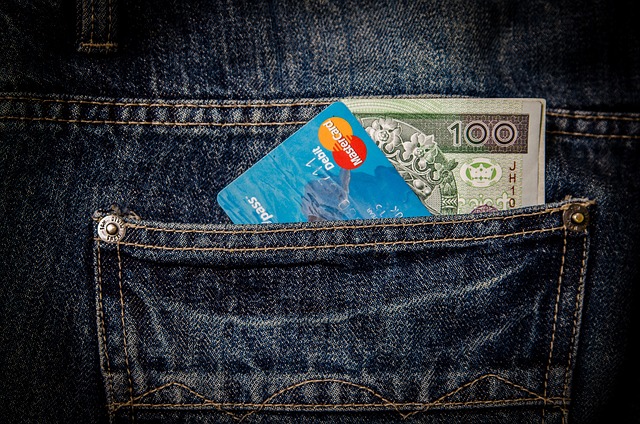Cost of Living for Students in the Netherlands

Studying in the Netherlands offers an exceptional blend of world-class education, cultural diversity, and a high quality of life. However, as a student, it’s essential to understand the cost of living to plan your finances effectively. From tuition fees to accommodation, groceries, transportation, and social activities, this article provides a comprehensive breakdown of what you can expect to spend while studying in the Netherlands.
1. Tuition Fees
Tuition fees vary depending on whether you are an EU/EEA student or an international (non-EU/EEA) student:
- EU/EEA Students : Bachelor’s programs typically cost between €2,209 and €3,000 per year, depending on the university and program.
- Non-EU/EEA Students : Non-EU students often pay significantly higher fees, ranging from €8,000 to €20,000 annually for bachelor’s degrees and €10,000 to €35,000 for master’s programs.
- Specific Programs : Some specialized programs, such as medicine, engineering, or MBA courses, may have even higher tuition fees.
Tip : Many universities offer scholarships and grants to help offset tuition costs. Check with your institution for available funding opportunities.
2. Accommodation Costs
Housing is one of the largest expenses for students in the Netherlands. Prices vary depending on the city and type of accommodation:
- Student Housing :
- Shared rooms: €350–€600 per month.
- Single rooms: €500–€800 per month.
- Studio apartments: €700–€1,200 per month.
- Private Rentals :
- In major cities like Amsterdam, Utrecht, and The Hague, private rentals can be more expensive, starting at €800–€1,500 per month.
- Smaller towns like Groningen, Maastricht, or Nijmegen tend to be more affordable, with prices ranging from €500–€900 per month.
Tip : Apply early for student housing through platforms like DUWO, SSH, or ISS Housing. These organizations provide affordable options specifically for students.
3. Groceries and Food
The cost of groceries depends on your lifestyle and dietary preferences:
- Monthly Grocery Budget : €150–€300.
- Eating Out : A meal at an inexpensive restaurant costs around €10–€15. Fast food meals start at €7–€10.
- Supermarkets : Chains like Albert Heijn, Lidl, and Aldi offer competitive prices. Buying in bulk or opting for store-brand products can save money.
Tip : Look for student discounts at cafes and restaurants near campus. Cooking at home is usually cheaper than eating out regularly.
4. Transportation
Public transportation in the Netherlands is efficient and widely used by students:
- OV-Chipkaart : This reusable public transport card allows you to travel on trains, buses, trams, and metros.
- Student Discount : With a Dutch student ID (OV-Chipkaart with a “Studentenleeftijdskorting”), you can get a 40% discount on train travel nationwide.
- Monthly Pass : A monthly pass for local transport ranges from €50–€100, depending on the region.
- Bicycles : Owning a bicycle is common and practical. Basic models cost €50–€200, and maintenance is minimal.
Tip : Consider purchasing a second-hand bike from online marketplaces like Marktplaats or Facebook groups.
5. Health Insurance
Health insurance is mandatory for all residents in the Netherlands, including international students:
- Basic Health Insurance : Costs approximately €100–€120 per month.
- International Students : If you’re from outside the EU/EEA, you may need to purchase international health insurance before arriving in the Netherlands.
Tip : Compare providers like Zilveren Kruis, Menzis, or ASR to find the best plan for your needs.
6. Utilities
Utilities include electricity, water, gas, internet, and mobile phone plans:
- Electricity, Water, Gas : €80–€120 per month for a single-person household.
- Internet : €20–€35 per month for broadband services.
- Mobile Phone Plans : €10–€25 per month for prepaid or contract plans.
Tip : Split utility costs if you live with roommates to reduce individual expenses.
7. Social Activities and Entertainment
The Netherlands offers plenty of opportunities for students to enjoy leisure activities without breaking the bank:
- Cultural Events : Museums, concerts, and festivals often provide student discounts or free entry on specific days.
- Nightlife : Entry to clubs starts at €10–€15, and drinks range from €5–€8 each.
- Sports and Fitness : Gym memberships cost around €20–€40 per month, but many universities offer subsidized fitness facilities for students.
Tip : Join student organizations or clubs to participate in group activities that are often cheaper or free.
8. Miscellaneous Expenses
Other expenses to consider include clothing, toiletries, books, and personal care items:
- Books and Supplies : €50–€150 per semester, depending on your field of study.
- Clothing : Thrift stores and sales events can help keep costs low.
- Miscellaneous : Allocate €50–€100 per month for unexpected expenses.
Estimated Monthly Budget for Students
Here’s a rough estimate of monthly expenses for students in the Netherlands:
| Category | Smaller Cities (€) | Larger Cities (€) |
|---|---|---|
| Accommodation | 500–800 | 800–1,200 |
| Groceries | 150–250 | 200–300 |
| Transportation | 50–80 | 80–120 |
| Health Insurance | 100–120 | 100–120 |
| Utilities | 80–120 | 100–150 |
| Social Activities | 50–100 | 100–150 |
| Miscellaneous | 50–100 | 100–150 |
| Total | 980–1,590 | 1,330–2,190 |
Financial Aid and Scholarships
To ease the financial burden, explore these options:
- Government Grants : EU/EEA students may qualify for the Dutch Student Finance (Studiefinanciering).
- University Scholarships : Many institutions offer merit-based or need-based scholarships.
- External Organizations : Look into scholarships from organizations like Nuffic, Orange Tulip Scholarship, or Erasmus+.



